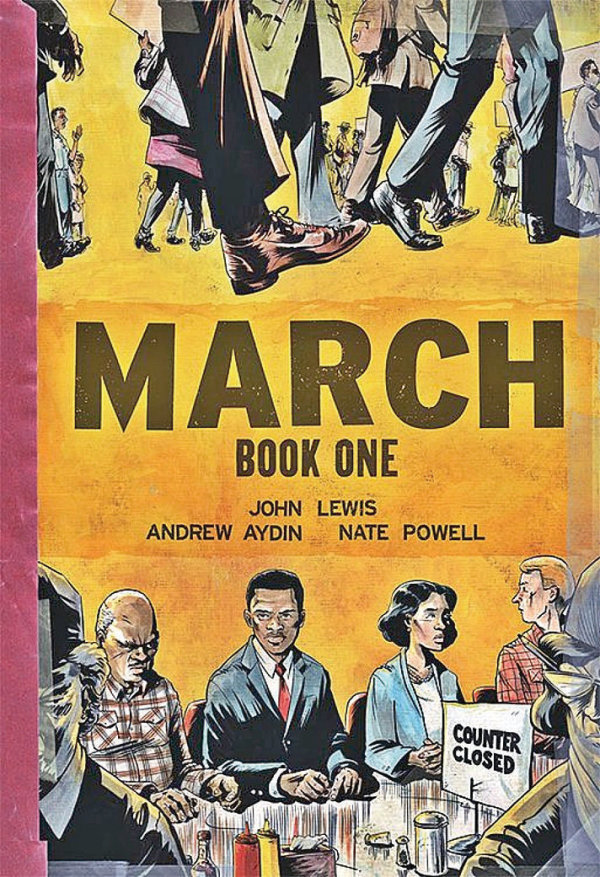ESQUIRE: Congressman John Lewis (D-Georgia) is a Civil Rights icon and a Mt. Rushmore-worthy American hero. At the dawn of the Civil Rights Movement, Lewis marched fearlessly into the maws of the Jim Crow South, through angry, racist mobs and truncheon-wielding state troopers, armed with nothing more than the courage of the righteous and unconditional love in his heart. Lewis shed his own blood to shame this country into living up to its founding promise that “all men were created equal.” This remains a work in progress.
At 76, he is the last man alive who spoke at the March On Washington in 1963. He is the last of the so-called Big Six—the six leaders of the Civil Rights Movement shepherded by Martin Luther King Jr.—and as such he is the closest thing we have to an American Gandhi still standing. Two weeks ago, Lewis was awarded the Liberty Medal at the National Constitution Center on Independence Mall in Philadelphia, the cradle of American democracy. Previous recipients include the Dalai Lama, Nelson Mandela, Mikhail Gorbachev, and Muhammad Ali.
His remarkable journey from chicken-tending son of a sharecropper to 15-term United States Congressman is told in a gripping 600-page three-part graphic novel called March. The trilogy documents Lewis’ central role in the white knuckle saga of the Civil Rights struggle—fraught with intolerable cruelty, daily indignities, appalling ignorance, and unspeakable violence—which is bookended by the inauguration of Barack Obama in 2008. March does not sanitize the brutal realities of the struggle, nor does it shy away from spelling out the N-word, which was hurled at Movement activists with shocking regularity by everyone from JFK-appointed federal judges on down to toothless backwoods Dixie thugs. “We wanted to make sure the story was told in an accurate and unflinching way,” says Nate Powell, who illustrated March.
March does for the Civil Rights struggle what Art Spiegelman’s Maus did for the Holocaust: shine a light on the darkest corners of the history of the 20th century—when the human race collectively realized it had reached the outer limits of its own humanity and stepped back from the abyss—rendering it knowable, and thereby unrepeatable, for children of all ages, in perpetuity. The second installment of March won the Eisner Award, which is like the Pulitzer Prize of comic books, and the just-published third and final installment has been nominated for the prestigious National Book Award. To date, school districts in over 40 states have adopted March as part of their core curriculum. Going forward, every 8th grader in the New York City school system will read March as part of their study of American history. MORE

